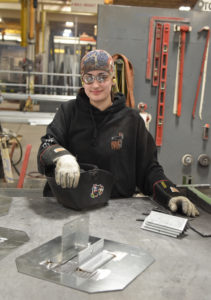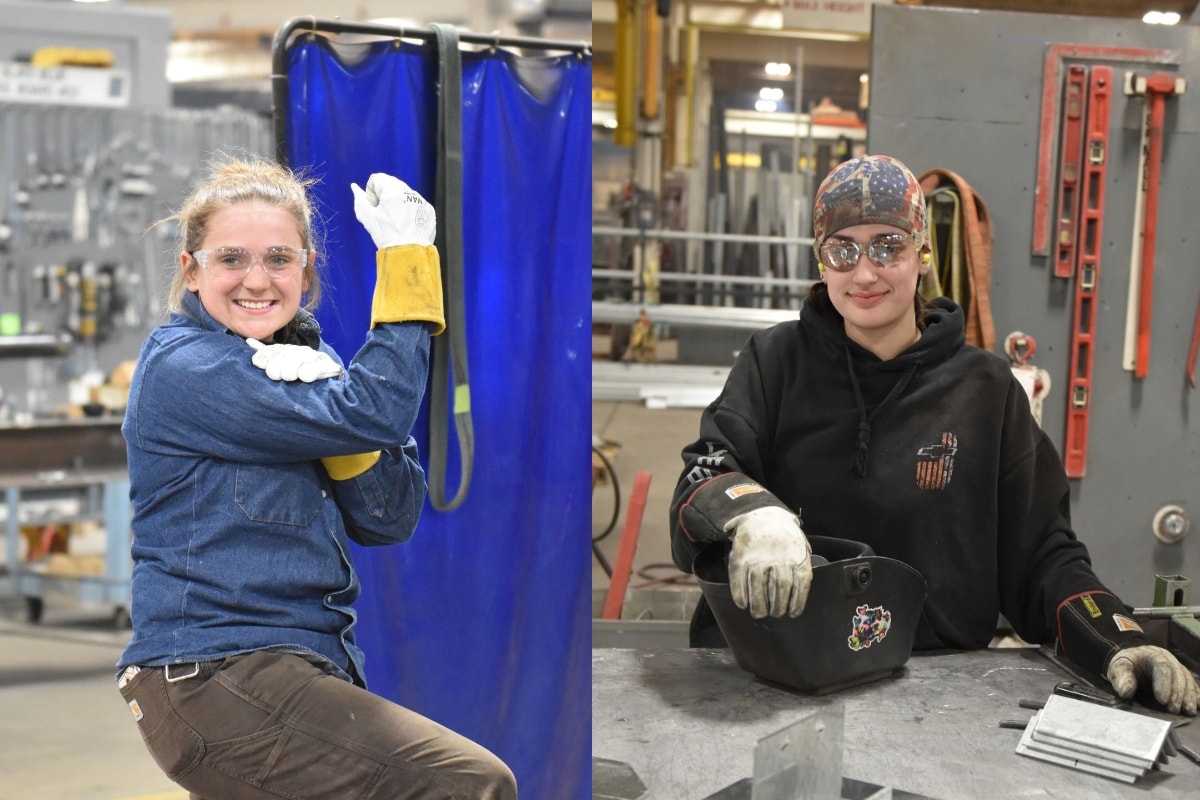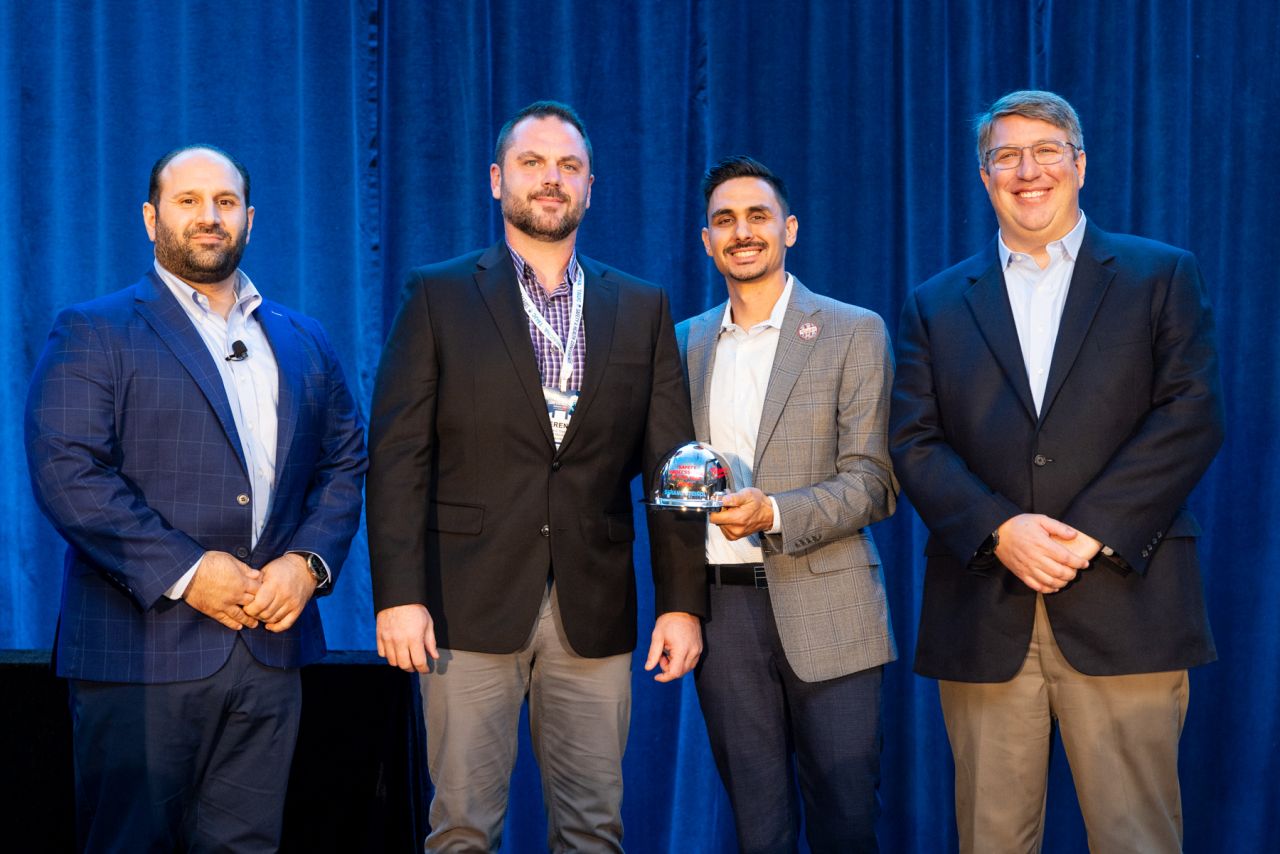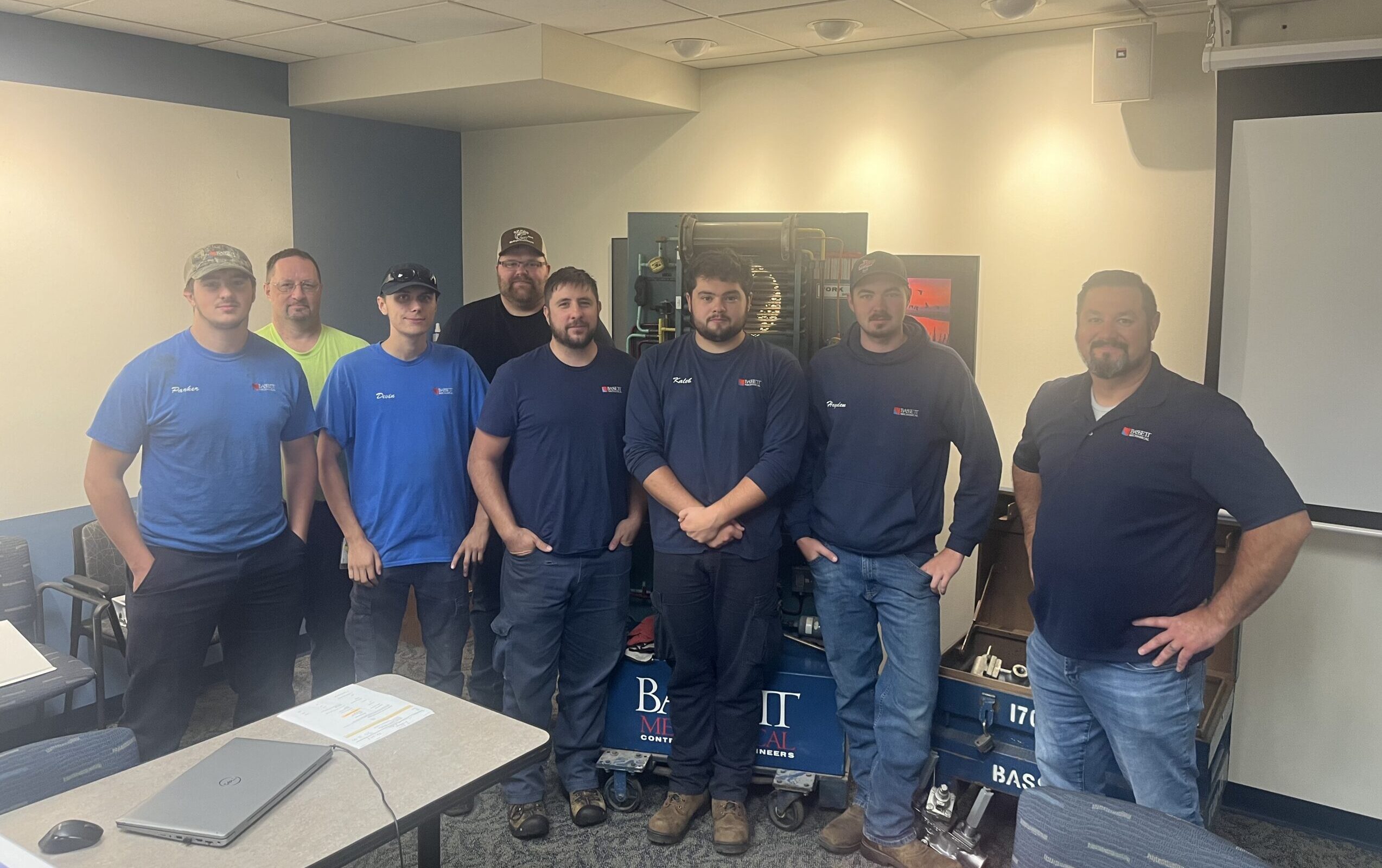You’re 5 years old, sitting on the rug in your kindergarten classroom with all your friends. Today the teacher is talking about careers. She holds up a flashcard that shows a nurse and a construction worker. The nurse pictured is a woman, and the construction worker is portrayed as a man. This is a memory that stands out for Isabella Campbell, a Metal Trades Trainee at Bassett Mechanical. Curious kindergartners like Isabella wonder- can a woman be the construction worker? Fast forward to 2022 and find Isabella as a great example that the answer is emphatically, YES!
BREAKING GROUND IN CONSTRUCTION AND SKILLED TRADES
The construction and trades industry has traditionally been male-dominated. According to the U.S. Bureau of Labor Statistics data, women made up 10.9% of the construction industry in 2020 – a slight increase from 9% a decade earlier. Despite these statistics, the construction industry is filled with opportunities for women with the right skills and capabilities. The U.S. Bureau of Labor Statistics also states the construction industry will add about 400,000 new jobs from 2020-2030. With adequate training and skills, men and women alike can achieve major success by investing in these careers.
“When I was a sophomore in high school, I needed one more elective to stay a full-time student and I decided to try welding. I loved it as soon as I put my hood down! My teacher was supportive of my passion for welding and helped me take the right steps for my future,” says Campbell.
Campbell’s teacher connected her with the Plumbers and Steamfitters Local 400 where she signed up for a Youth Apprenticeship Program at Bassett Mechanical. After high school, she became a Metal Trades Trainee at Bassett and is now working towards becoming a Pipe Fabrication Apprentice.
When I was a sophomore in high school, I needed one more elective to stay a full-time student and I decided to try welding. I loved it as soon as I put my hood down!
“If you have a passion for it, go for it! Don’t be afraid to pursue it just because you are going to be different than others in the field. You could be the first woman foreman on a job site. The first woman welder at your company. At some point, there will be change, and you could be that change,” says Campbell.
Kim Bassett, President and CEO at Bassett Mechanical, grew up in the family business working during summers and holidays through high school. After pursuing another career, she decided to join the family business. After more than 10 years of rolling up her sleeves doing various job rotations, which included working in the field and shop alongside the various trades, she became President and CEO. However, the glass ceiling in the construction industry has been a difficult one to crack, with just 1.4% of CEOs globally made up of women. Bassett hopes she’s paving the way for others. “I am often the only female around the table at industry association meetings or one of a few at national conventions. I hope I am helping to blaze a trail for other females to follow. It’s simply a matter of learning as much as you can, being able to speak the language, and not being intimidated by what you don’t know.”
Even as the minority, women continue to make a difference in construction and skilled trades. These women hold titles like welders, engineers, and project managers. Whether they’re wearing a hard hat or designing systems behind the scenes, they bring value to the job site and the project.
CREATING AVENUES FOR WOMEN TO GET INVOLVED
 The number of women receiving college degrees in construction-related fields is rising, but they are still outnumbered by men. It’s crucial to bring more women into the construction workforce.
The number of women receiving college degrees in construction-related fields is rising, but they are still outnumbered by men. It’s crucial to bring more women into the construction workforce.
To help combat the issue, the Local 400 and Mechanical Contractors Association (MCA) recently organized a Women in the Pipe Trades Open House in Kaukauna. With more than 60 female attendees, the event shared success stories from women in the industry and encouraged these career explorers to confidently see themselves as plumbers, steamfitters, fabricators, welders, and HVAC technicians.
“Gender is irrelevant when it comes to careers. Young people need to know that they can grow and learn and be successful in any role that they want to pursue,” says Bassett.
Bassett Mechanical had several women represented at the event that have found a career in “non-traditional” or “male-dominated” roles including Bassett herself, and Maddy Dejardin, a third-year Steamfitter Apprentice at Bassett Mechanical.
“The part I love most about working in the trades is learning new things every day, and the diversity of the job I get to do. I encourage women to get into the trades because there are many great opportunities to make a good living,” says Dejardin.
Successfully educating women about careers in the industry starts early. Schools and educational programs can play a significant role in highlighting the value of construction jobs for women and young girls. Here are some ways women can take charge of their careers in the construction industry:
- Job shadow a company that offers the career you’re interested in learning more about
- Research what the job entails and interview someone with that career
- Attend events and jobs fairs about a specific career
- Talk to teachers or guidance counselors about the opportunities available
- Look into Bassett Mechanical’s Youth Apprenticeship program
 Like Campbell, DeJardin also started her career as a Youth Apprentice at Bassett Mechanical. The Youth Apprenticeship Program (YAP) is designed for high school students who want hands-on learning in an occupational area at a worksite along with classroom instruction. Students are simultaneously enrolled in academic classes to meet high school graduation requirements, in a youth apprenticeship-related instruction class, and are hired by a participating employer under the supervision of a skilled mentor.
Like Campbell, DeJardin also started her career as a Youth Apprentice at Bassett Mechanical. The Youth Apprenticeship Program (YAP) is designed for high school students who want hands-on learning in an occupational area at a worksite along with classroom instruction. Students are simultaneously enrolled in academic classes to meet high school graduation requirements, in a youth apprenticeship-related instruction class, and are hired by a participating employer under the supervision of a skilled mentor.
Starting as a YAP in high school can lead to a full-time position after graduation, and that can lead to a formal apprenticeship in the trades sponsored by that same employer. Through an apprenticeship program, you can obtain paid, relevant work experience while acquiring the skills and credentials that employers value. 92% of apprentices who complete an apprenticeship retain employment, with an average annual salary of $72,000, and no college debt.
92% of apprentices who complete an apprenticeship retain employment, with an average annual salary of $72,000, and no college debt.
Encouraging women to take part in these opportunities is vital for the future of the industry. Bassett believes society continues to make advancements by encouraging women toward STEM careers. “There are still many opportunities for partnerships and engagement with parents, teachers, and guidance counselors about what STEM opportunities are available.”
THE FUTURE IS BRIGHT FOR WOMEN
It’s an exciting time for the construction industry. Women are seeing the opportunities in the industry along with the variety of work and the impact it makes.
“I can’t imagine doing anything else as a career. I get to work with very smart, creative, driven, and passionate people that love what they do and are good at it. We get to solve customers’ problems and become their heroes because of our customized solutions. I want other women to have that same opportunity to explore what they are good at and love to do,” says Bassett.
These young women are making an impact and following the passion that drives their dreams. Someday soon there just might be a 5-year-old kindergartener learning about careers and proudly waving a flashcard picturing a woman in a hard hat. Because of the trail blazed by these young women, this girl’s dream can be a reality.
Learn more about building your career at Bassett Mechanical.




